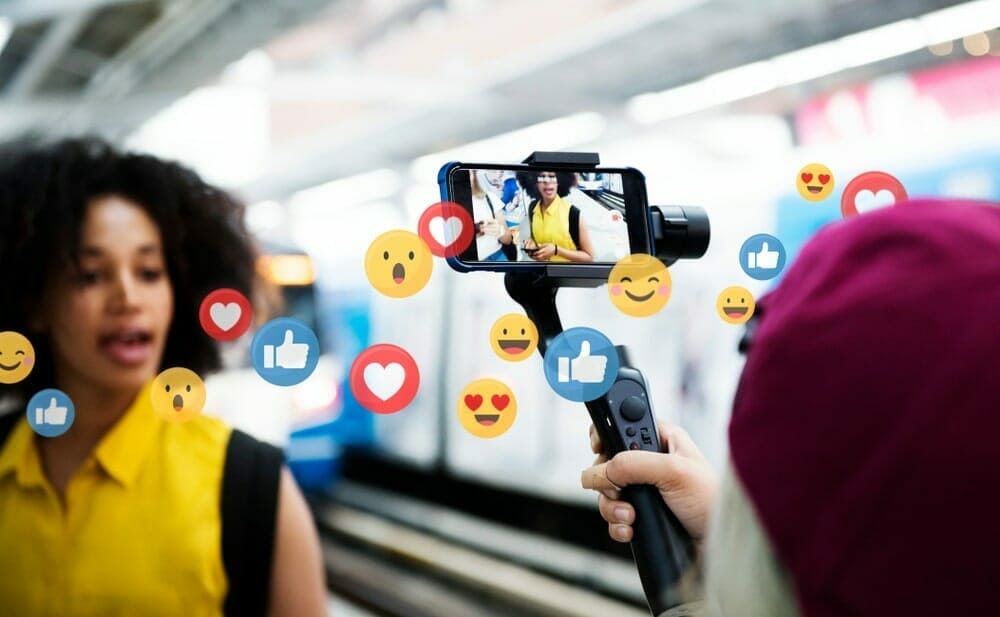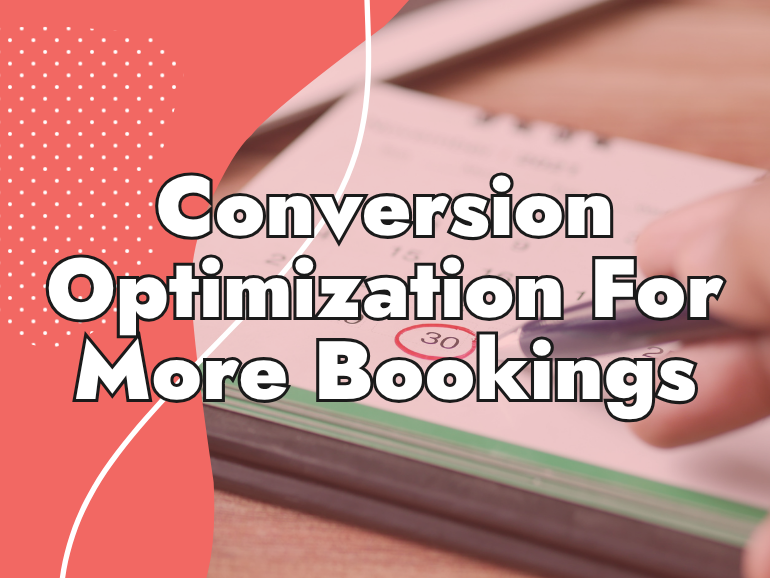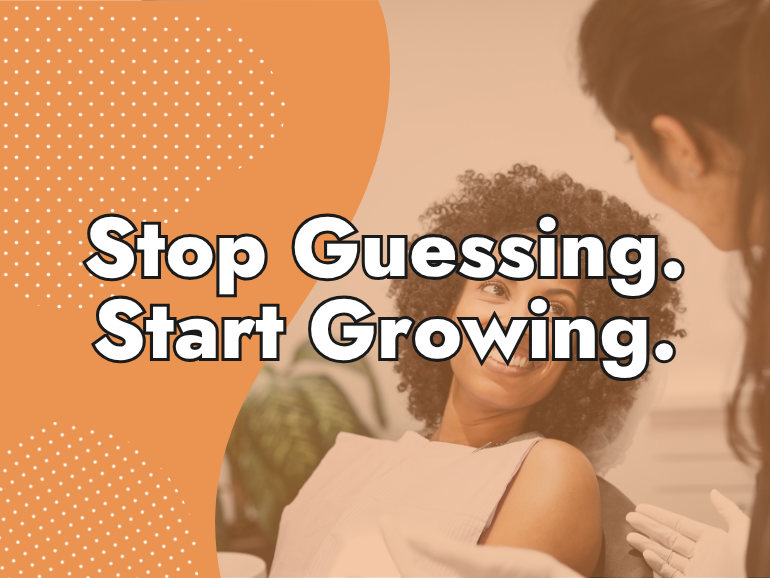How Can Influencer Marketing Help You Grow Your Business?
Influencers. Love ‘em. Hate ‘em. Depending on who you’re talking to, and talking about, influencers are either the sponsored scourge of social media, who fake it to make it, or they are beacons of marketing genius, sponsored or otherwise, idolized by millions for their authentic content. (Sometimes even for good reason.) Either way, influencers have…
Written by Keiran Griffiths
Last updated February 27, 2025 • First published September 27, 2019

Influencers. Love ‘em. Hate ‘em. Depending on who you’re talking to, and talking about, influencers are either the sponsored scourge of social media, who fake it to make it, or they are beacons of marketing genius, sponsored or otherwise, idolized by millions for their authentic content. (Sometimes even for good reason.)
Either way, influencers have been in the market for as long as people have been trying to sell stuff. Santa Claus helped sell Coca Cola back in the Thirties. In the Nineties, Joey from Friends helped a Japanese firm sell Ichiban lipstick for men. (Yes, we are entirely aware that Friends wasn’t real life, but we stand by this example.) In the Noughties, Grumpy Cat influenced millions to buy everything from cat food, to clothing, to soft toys. (And nobody could blame us… that cat!)
But who, exactly, are these ‘influencers’? What, exactly, do they do? And why does your business need them?
The short answer?
Who: An influencer, social media or otherwise, is a content creator who is recognized as an authority in a particular industry or niche.
What: By virtue of their authenticity, following and reach, an influencer can influence their audience, and oftentimes a huge audience at that, to act (buy something/do something) based on their say-so.
Why: 1. Word of mouth has always been a powerful tool to help promote businesses. Think of influencers as word of mouth on steroids. 2. Getting someone well-known, and trusted, in your niche or industry to endorse your products or services – gladly and of their own free will (even if it is compensated) – to a relevant, massive, eager audience, can boost your traffic, conversions and sales.
LIKE WHAT YOU’RE READING?
If these articles are helpful,
imagine what our team
can do for you!


More Traffic. Leads. Business.
I want to show you how SEO can grow your business in ways you haven’t seen before.
More Traffic. Leads. Growth.

I want to show you how SEO can grow your business in ways you haven’t seen before.
The long answer? Read on for everything you need to know about the who, what and why of influencer marketing, as well as exactly how it can help you grow your business.
What is influencer marketing?
Remember that time you bought a pair of jeans because your sister had a pair and convinced you they were the best booty-boosting jeans ever? Or the same watch as your best friend, because he told you it tick-tocked better than any watch he’d ever owned?
We jest, but in all seriousness, we’ve all bought something before because someone we liked, trusted and admired used or owned that very same something.
Influencer marketing works on this exact logic, and the knowledge that all of us trust our friends, peers, and people we admire more than the companies selling us stuff.
Quite simply, influencer marketing is the strategy of:
- using a well-known, well-respected, admired and trusted content creator
- already operating in your specific niche (i.e., they already have a following made up of your ideal audience),
- on a variety of digital channels (social media, blogs, etc.)
- to help get your brand message to, or product noticed by, your target market.
- on a variety of digital channels (social media, blogs, etc.)
- already operating in your specific niche (i.e., they already have a following made up of your ideal audience),
You partner with influencers to leverage their influence over others to improve brand awareness; increase your own following; increase traffic to your website; and ultimately boost sales.
Who would be an ‘influencer’?
Of course, you have your celebrity influencers. Celebrity endorsements of products and services continue to play a big role in marketing and advertising. (Pre-Matthew McConaughey, had you ever even looked at a Lexus? You can tell us the truth!) But celebrity influencers are in a class of their own and, to be truthful, closer to ‘advertising’ than influencer marketing. Well, in our books anyway.
For the purposes of this article, we are not talking about celebrity influencers (no matter how tenuous their grip on true celebrity – hello Kendall Jenner.) Instead, we’re talking about your average, garden variety digital influencer: online content generators, like you and me, only with nothing garden variety about them.
As owners of their own personal brands, influencers have established themselves as thought leaders and trusted advisors in a specific industry or niche. They have built up huge, dedicated and engaged audiences on their online channel of choice (social media, blog etc), with whom they share said thoughts, knowledge and recommendations. And by some charismatic quirk of fate, they have an uncanny ability to influence that mass following to like what they like, do what they do, wear what they wear, eat what they eat, and so on and so forth.
Note: Good influencers, the kind you want to work with, genuinely believe in their own personal brand and niche and, if will only work with you if they genuinely believe in your brand, product or service. Those who are willing to collaborate with anyone for a quick buck are also the ones who are likely buying likes and followers. Back away. (Keep reading to find out how to spot a spammer.)
Why should you consider adding influencer marketing to your marketing strategy?
We’re going to let you sit with these influencer marketing statistics for a bit.
- 49% of consumers today depend on influencer recommendations for their purchase decisions. (Digital Marketing Institute)
- 80% of marketers say influencer marketing is effective for their businesses, and 35% say it’s very effective. (MediaKix)
- 89% of businesses say their ROI from influencer marketing is comparable to or better than other marketing channels. (MediaKix)
- Influencer marketing delivers 11x higher ROI than traditional paid advertising. (MediaKix)
- 82% of consumers said they were highly likely to follow a micro-influencer recommendation on a product or service. (MarketingDive)
- 71% of marketers say the quality of customers and traffic from influencer marketing is better than other sources. (MediaKix)
- 86% of women use social media for purchasing advice. (Digital Marketing Institute)
- 74% of people trust social networks to guide purchasing decisions. (Digital Marketing Institute)
- 60% of consumers have been influenced by social media or blog while shopping at a store. (Digital Marketing Institute)
Suffice to say, given the right influencer, who:
- is already in the relevant market,
- already has great reach with an established, engaged audience on social media, blog or other online channels, and
- already resonates with your audience…
why wouldn’t you?
5 ways influencer marketing can help you grow your business
Influencer marketing can help boost your business in 5 key ways:
1. Influencer marketing can reach new audiences
For influencers to qualify as influencers, they need to have an audience to influence. Influencers have large (sometimes supersized) social media networks and followers, with audiences ranging from thousands into the millions. What’s more, since influencers tend to have gotten to where they are through intensely personal posts sharing details about common interests, their audiences are engaged. Invested. By working with an influencer in your market, you get to tap into this massive, engaged, invested audience. New invested audience equals new leads equals potential new sales and conversions.
Top tip: Make sure you choose an influencer already creating content in a niche market relevant to your brand. The audience may be new to your brand, but the topic/product/service in question shouldn’t be a stretch for the influencer they are following. It needs to be a natural fit for their personal brand and niche market.
2. Influencer marketing can build customer loyalty – quickly
By introducing yourself, and your business, to new audiences through an influencer, somebody they already know, love and trust, you are providing immediate context and credibility for your brand. They don’t have to know you to love you – they can skip to that good stuff immediately by virtue of the fact that they know and love the person ‘vouching’ for you. In this way, customer loyalty is built quickly and effectively.
Top tip: Brands working with influencers often collaborate by offering their, now mutual, audience discount coupon codes, customized specifically for that influencer and that collaboration. Incentivizing customers with a discount for a product validated by someone they trust builds customer loyalty faster than you can say incentivize.
3. Influencer marketing can yield a higher ROI
This bears repeating: 89% of businesses say their ROI from influencer marketing is comparable to or better than other marketing channels. (MediaKix), with influencer marketing delivering 11 times higher ROI than traditional paid advertising. (MediaKix) As a rule, influencer marketing campaigns are low cost, mostly due to the fact that if your brand is an organic fit with an influencer’s ‘brand’, they won’t ask for much to endorse it. Some influencers will love and believe in your brand so much they’ll work with you simply for the cost of a sample product! The result: low cost + effective advertising = big return on investment.
Top tip: For the best results from your investment, work with influencers playing with these three most effective content formats: Instagram Posts (78%), Instagram Stories(73%), and YouTube Videos (56%). (MediaKix)
4. Influencer marketing can beat ad blocking technology
Because influencers only work with brands they believe in, endorsing products and services they would genuinely use and recommend, their posts, on whatever platform, are generally considered trustworthy and ‘organic’. (Even though, by law, they must label that post as ‘sponsored’.) As such, influencer posts are able to escape those pesky things called ad-blockers. And these days, with 40% of customers using ad-blocking technology (Marketing Land), finding new, organic and engaging ways to share your brand message with the public is crucial.
Top tip: By creating content that is a natural, organic fit with an influencer’s brand, you are not only beating ad blockers, you are avoiding potential ad annoyance by your potential customer. Think like your audience. Always. Will this content annoy the audience? Will they lose faith in the influencer they’ve always looked to for recommendations?
5. Influencer marketing can boost sales and drive conversions
To recap: Influencer marketing can help you boost your business by leveraging your chosen influencer’s good standing with their trusting audience to:
- Expand your reach to an already engaged, relevant audience;
- Build brand trust and strengthen brand messaging through the authentic endorsement of the influencer; and ultimately
- Gently nudge consumer buying decisions in your direction, courtesy of their trusted advisor’s influence, thus boosting sales and driving conversions.
How to find influencers
Now that you know what they are and why you should work with them, the big question is ‘who’ exactly is the influencer you should be working with. How do you find the right influencer to work with?
The answer is obvious: you’ll find them in their own backyard. Online.
Use influencer software: It seems crazy, but influencer software – technology and software designed specifically to help businesses find influencers (and judge them) – is a thing. Influencer marketing has become that important! Try Buzzsumo, Mention, upFluence or BuzzStream on for size. Tools like these allow you to research influencers, identify key influencers popular in your desired target audience, review influencer interactions and engagement metrics, measure their success – by content and platform, and more.
Do a Google: Thank Google for Google, eh?! Google industry-related terms and keywords to find frequently mentioned experts, thought leaders, content contributors in your niche market. You’ll find that certain names will keep appearing on industry-specific sites, blogs and other web pages.
Search social media: Search your competitors’ social media platforms for sponsored content to see which influencers they are collaborating with. You can also search for hashtags, keywords and phrases, specific users, and tagged audience members to see who’s posting what, who’s collaborating where and with who, and who’s kind of a big deal.
Ask someone: Ask your industry friends (frenemies?), team and colleagues, even your current social media audience who they are following and who they’ve partnered with in the past.
Ask yourself: Once you’ve identified a few key influencers within the right industry, you then need to ask yourself a few questions:
- Does this influencer fit my brand image?
- Does my product fit their brand image?
- Is their audience my dream audience?
- Is my dream audience even on their favoured content channel?
- Does this influencer partner with any brand who will throw them a freebie or some cash? (Just scroll through their content and the answer to this will quickly become clear. If it’s a yes, back away.)
How to spot a scammer
Some influencers buy followers and likes. They even buy comments. True story. Here are a few simple tips to spot a scammer.
Look at their followers for the following warning signs:
- Keep an eye on how many followers they have that don’t have a profile photo.
- Check their followers’ Instagram handles – do you see a lot of random letter/number combination handles?
- Does the number of followers seem excessive in comparison to their number of posts? For example, if they’ve only posted 100 photos, but have 1 million followers, that doesn’t ring true, does it?
Pry deeper into posts:
- Do the comments on posts seem genuine? Poor grammar, robotic language. It’s easy to spot a bot comment, trust us. You’ll know it when you see it.
- Do all their posts seem to be some sort of plug?
- Do they post frequently?
- Are their posts consistent in tone and subject?
At risk of trying to influence you, by now we think it’s safe to say you’ve probably seen the value in influencer marketing. It’s little wonder that the influencer marketing industry is expected to hit $10bn by 2020. (Digital Marketing Institute) Still not entirely sure how to make the most of this increasingly go-to marketing strategy though? We can help. For more information on how to leverage influencer marketing to boost your business, contact 1st on the List today by calling 1-877-563-0459 or email us at [email protected].
General FAQs About Influencer Marketing
Keiran Griffiths
Keiran Griffiths is the President & Managing Director at 1st on the List. He works exclusively out of the Abbotsford head office and has extensive experience helping small and big brands grow their business. His background is in restaurant and hospitality management as well as business development (he started his own property management company in 2014). Up for any challenge, Keiran works with clients to assess their budget and investment capabilities and come up with a marketing solution that will earn them the biggest bang for their buck.
Don’t miss out – get newest posts straight to your inbox!
OTHER ARTICLES WE THINK YOU’LL ENJOY
Partner With Us. Get More Leads.
Stop trying to do it all on your own – reach out to our team and we can discuss marketing strategies that are best suited for your business!
[NO HASSLE, NO PRESSURE, NO WORRIES – JUST MEANINGFUL INSIGHTS]








